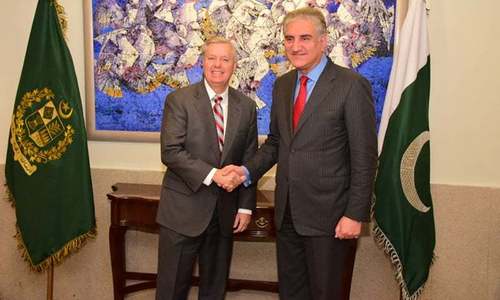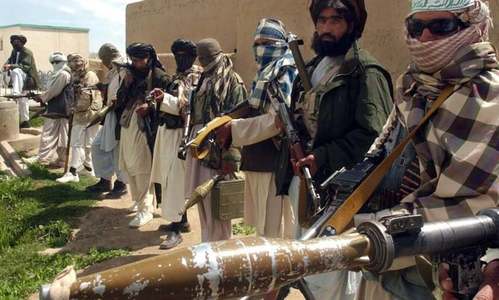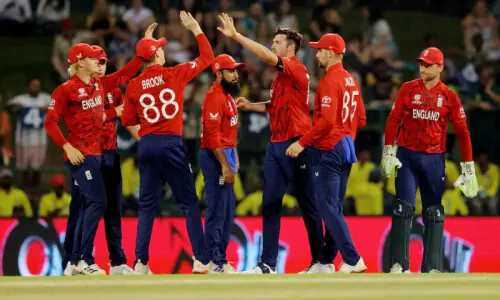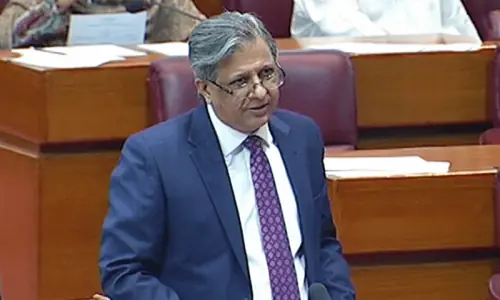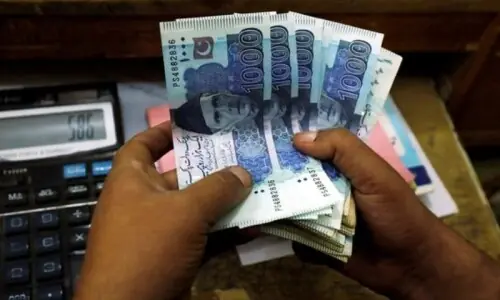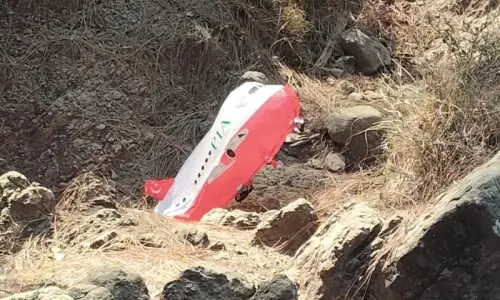PESHAWAR: Afghan Taliban on Sunday acknowledged that progress had been made in talks held last week in Qatar but denied reaching any agreement with their American interlocutors on a ceasefire and talks with the Afghan government.
In a brief statement, Taliban spokesman Zabihullah Mujahid said the meeting between their political office in Doha and special US representative Zalmay Khalilzad held for six consecutive days had finally come to an end.
“In accordance with the agenda, this round of negotiations revolving around the withdrawal of foreign troops from Afghanistan and other vital issues saw progress,” he said.
US-Taliban talks: As hopes rise of a deal, what comes next?
“But since issues are of critical nature and need comprehensive discussions, therefore it was decided that talks about unresolved matters will resume in similar future meetings in order to find an appropriate and effective solution and also to share details of the meetings and receive guidance from their respective leaderships,” the statement read.
It made it clear that until the issue of withdrawal of foreign troops from Afghanistan was agreed upon, progress on “other issues is impossible”.
The statement ran counter to media reports about a “rather definitive” agreement on the withdrawal of foreign troops from Afghanistan.
US envoy in Kabul to secure cooperation from Afghan president
Mujahid denied his group had reached any agreement on a ceasefire with Khalilzad. “Reports by some media outlets about agreement on a ceasefire and talks with the Kabul administration are not true,” his statement added.
Progress praised
While Foreign Minister Shah Mehmood Qureshi highlighted Pakistan’s role in facilitating the dialogue between Taliban and the United States and hailed the progress made in the talks, Mujahid’s statement thanked Qatar for “their facilitation role”.
Mr Qureshi said “the world has accepted Pakistan’s stance on the peace process”. But peace in the region was not possible without dialogue, he said.
“Pakistan has pursued a regional outlook by reaching out to different countries and advocating its resolve for a stable and peaceful region,” Mr Qureshi said.
US Secretary of State Michael Pompeo called it an “encouraging news”.
Like his envoy, Pompeo used Twitter to hail the peace process. “Encouraging news from [Ambassador Khalilzad]. He reports significant progress in talks with the Taliban on Afghanistan reconciliation,” he tweeted.
Pompeo underlined the US desire to withdraw American troops from Afghanistan in his brief message. But equally important for the US was the need to ensure that Afghanistan did not again become a hub of terrorism after the pullout, he added.
“The US is serious about pursuing peace, preventing Afghanistan from continuing to be a space for international terrorism & bringing forces home,” he wrote.
He also emphasised the US commitment to continue working with the Afghan government. “Working with the Afghan govt & all interested parties, the US seeks to strengthen Afghan sovereignty, independence & prosperity,” he added.
Ambassador Khalilzad was in Kabul on Sunday to try to secure cooperation from Afghan president after negotiations with Taliban leaders in Qatar, Reuters reported.
With the special US representative and his boss Secretary Pompeo, as well as Pakistan and the Taliban, hailing progress in the talks, he must now win over President Ashraf Ghani — whose government the Taliban have so far kept out of the process.
Six days of talks ended in Qatar on Saturday with key parts of a draft pact reportedly mapped out. But it is not clear whether the draft described by the Taliban sources is acceptable to both sides or when it could be completed and signed.
A fresh round of talks between Khalilzad and the Taliban is expected to take place on February 25 in Doha, two senior Taliban sources said.
While he has not been directly involved until now, Ghani’s role is likely to grow as a full deal gets closer and diplomacy intensifies.
Without going into details on Saturday night, Khalilzad said in tweets that nothing could be agreed without an intra-Afghan dialogue and a full ceasefire.
“He [Khalilzad] will inform Ghani and his officials about all the developments, seek their opinion before travelling back to Washington,” a senior Afghan official said on conditions of anonymity.
Khalilzad is also due to brief top regional diplomats on Monday morning.
President’s options
Western diplomats describe Ghani as being in a tight spot, with no authority to decide on the foreign troops’ departure and the final decision to declare the ceasefire resting with the Taliban.
He, however, does enjoy the power to decide to support an interim government rather than push for presidential elections which could prove to be a distraction to the peace effort.
So far he has rejected talk of an interim government.
“It is time for Ghani to choose between elections or peace process,” said a western diplomat based in Kabul.
Despite the progress on a draft pact, violence is widely expected to continue, with the Taliban mounting daily attacks against the Afghan government and its security forces.
The Taliban now control about half of Afghanistan’s territory and Ghani said in Switzerland last week that 45,000 members of the country’s security forces had been killed since he took office in 2014.
A former Taliban leader predicted intense fighting ahead. “I think Taliban won’t stop their fight until they get 100 per cent sure that foreign forces are leaving Afghanistan,” said Sayed Mohammad Akbar Agha, who heads Ways to Save Afghanistan, an independent group run by tribal elders and religious scholars working towards securing peace in the war-torn country.
Anwar Iqbal in Washington also contributed to this report.
Published in Dawn, January 28th, 2019



